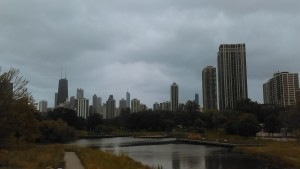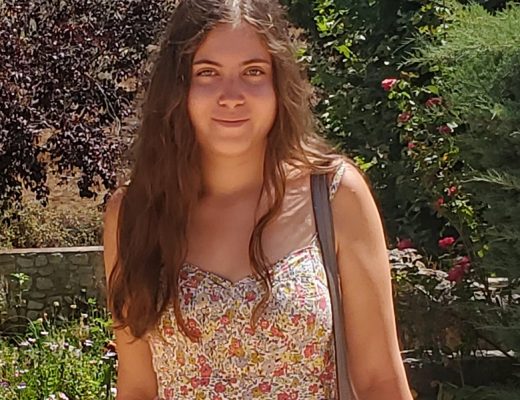 It took me a while during my freshmen year of college at Columbia to discover what I wanted to do for the rest of my life. My first semester, I declared a major in journalism, concentrating in magazine editing. Partially, it was because I loved the process of editing and how images and words can mesh together beautifully. It was also because it would be something that the world (and some members in my family) would judge as a practical choice for a career. My first journalism class went horribly. We were required to write about a social issue that we cared about on the first day. I chose income struggles for families in America; it was filled with statistics and boring quotes you would hear on CNN. Ultimately, my professor for the course said it was “too emotional.”
It took me a while during my freshmen year of college at Columbia to discover what I wanted to do for the rest of my life. My first semester, I declared a major in journalism, concentrating in magazine editing. Partially, it was because I loved the process of editing and how images and words can mesh together beautifully. It was also because it would be something that the world (and some members in my family) would judge as a practical choice for a career. My first journalism class went horribly. We were required to write about a social issue that we cared about on the first day. I chose income struggles for families in America; it was filled with statistics and boring quotes you would hear on CNN. Ultimately, my professor for the course said it was “too emotional.”
I decided to give fiction writing a try. I wanted more life in my writing. Though I enjoyed making up stories, inspired by Nicholas Sparks and Stephen King novels, I struggled to make up a story every week in my fiction workshop. When I did write something, I didn’t think it was as good as the others.
After a third visit to my academic counselor’s office, she suggested that I try nonfiction. “You’ve tried everything else,” she said. I took her advice; it couldn’t hurt, I thought, and I couldn’t face asking her to change my major again.
My first class was a beginner’s writing workshop for creative nonfiction. Our first assignment was to write a personal narrative about anything and it would be workshopped the next week. After class, I expressed to my professor that I had nothing to write about. For a moment, I thought of switching back to fiction. I took for granted how the art of creating new characters and fantasy worlds could provide a wall between myself and the readers. I didn’t have to invest myself in the stories. I could hide behind a curtain and dazzle the audience with a story that had nothing to do with me. I didn’t want to let people in with the words that I wrote.
My professor looked at me quizzically but with an endearing smile. She reminded me of a spiritual mantra -she was drenched in colorful beads and turquoise stones were on her fingers. She touched my arm, which led me to explain more.
“I feel like I have nothing to write about,” I said.
“Everyone has something to write about. Just write what you know.” This was the advice she gave me. It was simple enough, but back at my dorm after class, I sat in front of my laptop and those words swirled around, suffocating me.
Why would anyone want to read about my life and what I’ve been through? What makes my voice so special? And even if I wrote what I knew, I wasn’t even sure I knew anything.
The love, the worry, the pain. All of these things make up a person’s life, all of these things made up my life in experiences since the day I was born, until now. But what I knew or know about them, well, that was a different story.
Knowing can be described as being aware of an experience through observation, inquiry, or information–after you developed an understanding of that experience. As time passed, workshops in nonfiction became more comfortable.
Now I vow to write what I know and share stories with people that may be different from their own. I pour out flashes of memories on paper. I ultimately do what I love, I write. I try my hardest to present my “knowing” and maybe if someone reads them it will wake up the “knowing” in their life too.
Still in front of my laptop, the cursor taunting me, I shook off the writer’s block, the baggage of fear and I wrote. Before we workshop a piece the writer is required to talk about what they wrote about and what they were trying to convey in their piece. When it was my turn to express my piece in stumbled words and “um’s” like I usually do, I came up with nothing. I felt my professor staring at me with the same endearing smile, a reminder that she and class will handle my work with care.
I began with, “I wrote about my family and this is what I know…”
DeLaynna Corley, Assistant Editor

